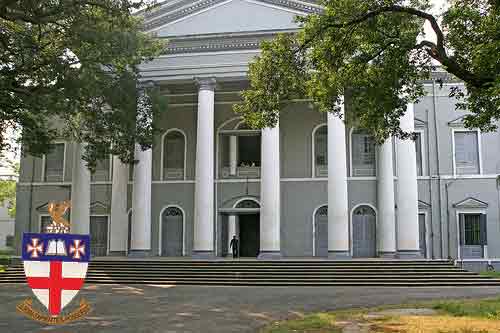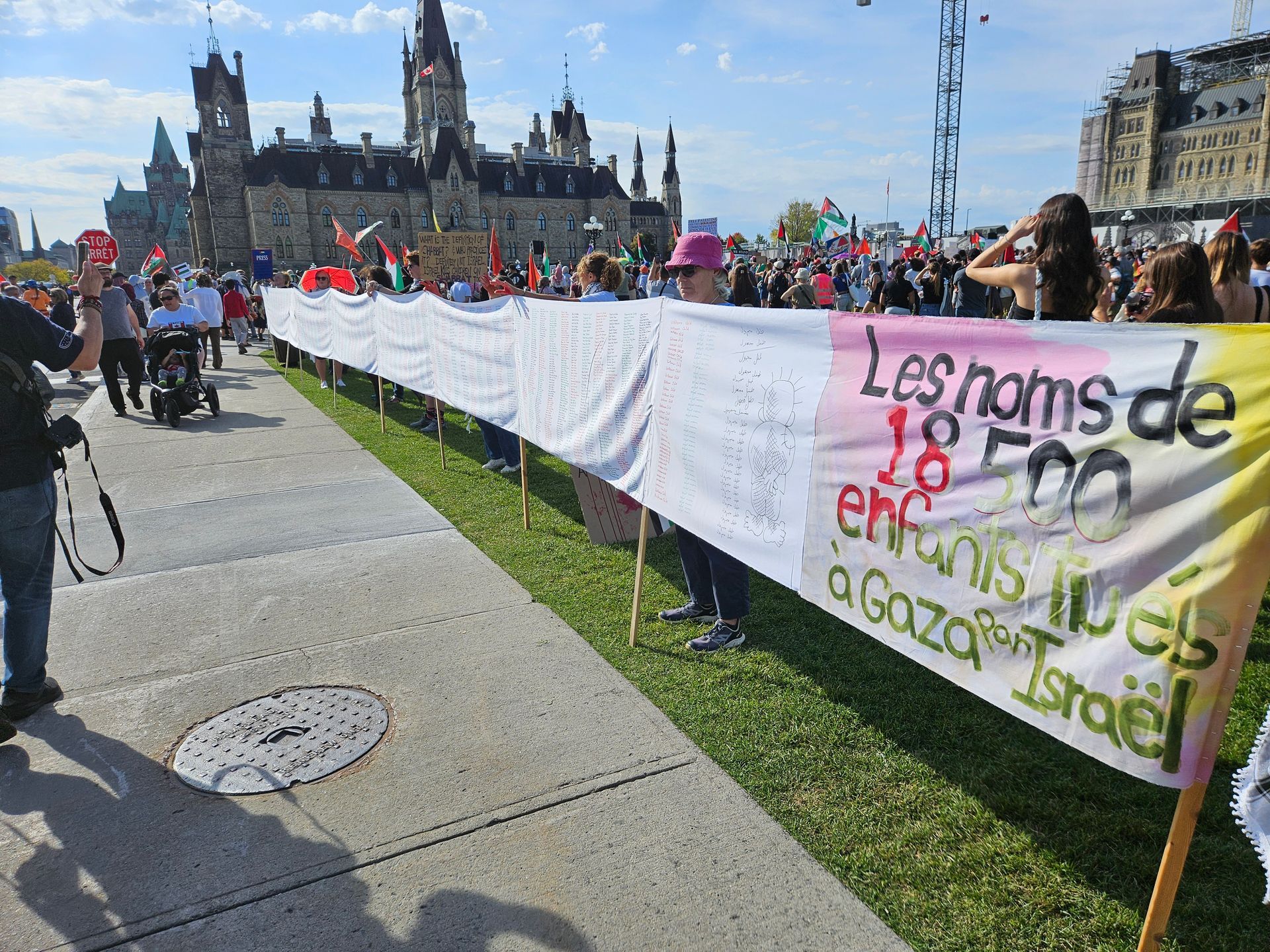A H Harry Oussoren • February 27, 2020
From Generation to Generation - Series Post 4

[Continuing the "From Generation to Generation" conversation with my father, Dr. A H Oussoren (+1968), based on his doctoral thesis: William Carey - Especially His Missionary Principles. Leiden, A.W.Sijthoff's Uitgeversmaatschappij n.v., 1945]
This gathering of books became the genesis of the library of Serampore College. Created in 1818 and chartered in 1828 by King Frederick VI of Denmark, the college was consistent with missionaries' intention to make education available to the local population. Serampore still operates today as a university (pictured above) with a faculty of theology. https://www.seramporecollege.org . (Serampore was a Danish colony originally, later taken over by English military and the East India Company.)
In the prospectus of the college circulated on the 15th July 1818, the Missionaries outlined the plan to make [the library] a “Treasure House of Knowledge", declaring that
” the Vedas, Puranas, Darsanas, and all other Sanskrit works on Arts and Science, all the works obtainable in the various popular dialects of India, the most approved Persian and Arabian authors, the Chinese classics and approved authors in that languages, such works in Cinghalese, Tibatese, Pali, Burman, and other Indian dialects, every Hibrew and Syriac works procurable in the East, the best authors of Greek and Latin, the best works in French, Italian and Portuguage, are to be obtained for the Library.”
(sic) (Serampore College website)
Knowing the languages, being able to communicate in the vernacular was, and making learning accessible for Indians was, for Carey, a foundational principle in missionary endeavor. It was not acceptable to rely on the language of domination - English or Danish - or to sustain ignorance.
A remarkable human being, Carey's trade was making shoes and boots - a humble cobbler. But his passion lay in learning extensively, including natural sciences, and using his learning to speak with local people and proclaim the Christian message.
Linguistics was a special gift he cultivated. Within a year of arriving in India he "was able to send home [to England] a copy of Genesis, Matthew, Mark, and James in the Bengali language with a small vocabulary and grammar of his own composition." (Thesis, p. 64) By the end of his life, Carey was a recognized scholar of Indian languages, including Sanskrit, and, with the Serampore Mission's very productive printing press, was able to disseminate various native literary works and, of course, Bibles in the vernacular languages of the country.
The thirst to learn was crucial gift enabling him to challenge local anti-human practices. Hindu ritual infanticide of children to "Mother Ganges" was common at the time, as was sati, the immolation of widows on the husband's funeral pyre. Carey's revulsion for activities such as these, led him not simply to react against local rituals, but to research them. Out of respect for the people, he sought to discover whether such practices rested upon higher religious authority. (Thesis, pp. 83 f.) Armed with information to prove they were not and relying on the support of colonial governing authorities, his goal was to turn Indians from "darkness to light." (Thesis, p. 84)
Two key principles, both indicative of his commitment to humility in understanding his high calling, defined Carey's living. The first, "missionaries must live among
the people in the simplest manner possible; second, missionaries must support themselves by agricultural, industrial, or some other work." (Thesis, p. 58)
"Living among" meant respecting and learning from the people around him and being able to discern what was important to them. Segregation in a compound typical of colonial settlers was not appropriate for missionaries. Both where and how they lived had played important roles in the integrity and acceptability of the mission.
Carey's humility was evidenced in his personal stewardship. Keeping only a small, necessary amount of earned income for personal use, he contributed the rest to the Mission. His income came from various "tent making" roles, but eventually became more reliable as a well-paid teacher of Bengali language and Sanskrit to colonial civilians coming to India and in subsequent teaching assignments at Serampore College. Even then, Carey persisted in simplicity and frugality in order to remain as close to the lifestyle of local people as possible.
Carey's work for social transformation deserves more attention than is possible here. But looking for any and "all opportunities of doing good" was simply part of living among the people (Thesis, p. 276) Preaching two or three times per week did not free any missionary from carrying on "conversations with the natives almost every hour of the day" in order to understand better their life situation and carry out efforts toward improving their lives. Carey and other missionaries responded with heart and religious conviction for the common good.
These improvement did however not include analyzing the political context in which the Mission found itself. British military and political dominance, combined with European white racism and Christian superiority was unexamenined assumption for the Serampore missionary enterprise. Its people, values, and interpretation of Christian faith - all regarded Indian people largely as inferior objects for change. "We think the great object which Divine Providence has in view in causing the Gospel to be promulgated in the world, is not the changing of the names, the dress, the food, and the innocent usages of mankind, but to produce a moral and divine change in the hearts and conduct of men." (sic) (Thesis p. 281)
Missionaries judged the religious convictions and many of socio-cultural conditions of Indian colonial subjects as unacceptable for living and dangerous to their eternal well-being. Held in "snares and delusions" (Thesis, p. 275), the Indian people dwelled in "gross darkness,...having never had any just and adequate ideas of the evil of sin, or it consequences." (Thesis, p. 278)
It was the duty of missionaries to save the people from these snares and delusion so that eternal damnation might be avoided. This goal could not be imposed, Carey insisted. In "The Bond of the Missionary Brotherhood of Serampore" it was articulated as follows: "All force, and everything haughty, reserved and forbidding it, becomes us ever to shun with the greatest care." (Thesis, p. 277) The missionary must, however, persevere in their high calling with all means at their disposal. No personal or social obstacles should get in the way of this mission because the stakes could not be higher.
Their core mission, as they understood it, was, however, personal salvation - saving the soul of heathen individuals for eternal life and creating communities of Christians. Rooted in
"the awful doctrine of eternal punishment and to realise frequently the unconceivably awful conditions of this vast country, lying in the arms of the wicked one" (Satan), their missionary vision is clear: "He who raised the Scottish and brutalised Britons to sit in heavenly places in Christ Jesus, can raise these slaves of superstition, purify their hearts by faith, and make them worshippers of the one God in spirit and truth. The promises are fully sufficient to remove our doubts, and to make us anticipate that not very distant period when [God] will famish all the gods of India, and cause these very idolaters to cast their idols to the moles and to the bats, and renounce forever the work of their own hands." (Thesis, p. 275)
A cynic could easily come to the conclusion that the virtuous principles guiding missionaries' lives were part of a strategic and clever attempt to achieve the primary goal of conversion to their understanding of God and Christ. The reality is that the blinders of their time prevented Carey and other from seeing what today appears obvious. Their missionary principles was driven by obedience to their understanding of God's will, not by a theological anthropology that respected and loved unconditionally the neighbour as s/he was, created in the image of God. The goal was to convert the other to missionaries' way of believing, assuming that their way alone was faithful to the way, the truth, and the life in Christ.
In 1945, my father was not compelled to analyse or critique the culture of superiority and the "awful doctrine" informing the modern missionary movement. Creating baptized Christians like the Christians at home in Britain and Christianizing the Indian nation was accepted as the crowning goal of the missionary enterprise.
It surprises me somewhat that the Nazi occupation and Aryan ideological oppression of Europe had not been identified as analogous to British colonial domination and Christian theological superiority in missionary fields. Christian mission was still largely deemed to be a virtuous, beneficent enterprise for the healing and redemption of the nations.
Its shadow side had not yet been fully exposed or explored. Its motivations were largely confined to the biblical commission to "make disciples of all nations." Liberation theology was still only a seed awaiting germination in the ground of theological discourse.
But the ubiquitous Spirit was moving people - those subjected to colonial Christianity inspired by the Bible's revolutionary testimony, those who took seriously Jesus liberating ways of dealing with the marginalized, those who saw patriarchy's flawed anthropology - people beginning to realize that the western white Christianity was less than beneficent or just than had previously been accepted.
Pluralism was growing as the world became smaller. Humans' limited ability to comprehend Truth became increasingly obvious. The dominant theological paradigm centred in the occidental world was seen to be partial, sexist, and triumphalistic. A new way of relating to other cultures and religions was on the horizon.....

